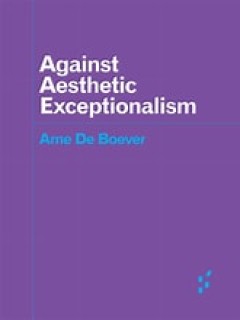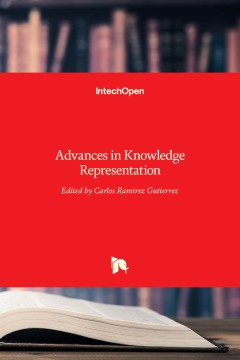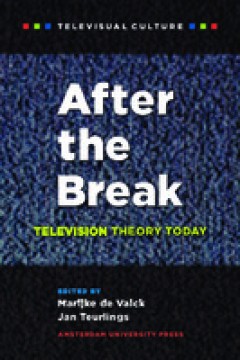Filter by

Advances and Applications in Deep Learning
Artificial Intelligence (AI) has attracted the attention of researchers and users alike and is taking an increasingly crucial role in our modern society. From cars, smartphones, and airplanes to medical equipment, consumer applications, and industrial machines, the impact of AI is notoriously changing the world we live in. In this context, Deep Learning (DL) is one of the techniques that has ta…
- Edition
- -
- ISBN/ISSN
- 9781839628801
- Collation
- 122 hlm; ill., lamp.,
- Series Title
- -
- Call Number
- -

Against Reduction
Provocative, hopeful essays imagine a future that is not reduced to algorithms. What is human flourishing in an age of machine intelligence, when many claim that the world's most complex problems can be reduced to narrow technical questions? Does more computing make us more intelligent, or simply more computationally powerful? We need not always resist reduction; our ability to simplify helps u…
- Edition
- -
- ISBN/ISSN
- 9780262367318
- Collation
- 184
- Series Title
- The MIT Press
- Call Number
- -

Against Aesthetic Exceptionalism
Reconsiders exceptionalism between aesthetics and politics Here, Arne De Boever proposes the notion of aesthetic exceptionalism to describe the widespread belief that art and artists are exceptional. Against Aesthetic Exceptionalism challenges that belief by focusing on the sovereign artist as genius, as well as the original artwork as the foundation of the art market. Engaging with sculpture, …
- Edition
- -
- ISBN/ISSN
- 9781452962450
- Collation
- 2019
- Series Title
- Forerunners: Ideas First
- Call Number
- -

Advances in Knowledge Representation
Advances in Knowledge Representation offers a compilation of state of the art research works on topics such as concept theory, positive relational algebra and k-relations, structured, visual and ontological models of knowledge representation, as well as detailed descriptions of applications to various domains, such as semantic representation and extraction, intelligent information retrieval, pr…
- Edition
- -
- ISBN/ISSN
- 9789535156345
- Collation
- oer.unej.ac.id
- Series Title
- -
- Call Number
- -

Active Learning: Theoretical Perspectives, Empirical Studies and Design Profiles
This eBook is a collection of articles from a Frontiers Research Topic. Frontiers Research Topics are very popular trademarks of the Frontiers Journals Series: they are collections of at least ten articles, all centered on a particular subject. With their unique mix of varied contributions from Original Research to Review Articles, Frontiers Research Topics unify the most influential researcher…
- Edition
- -
- ISBN/ISSN
- 9782889458851
- Collation
- oer.unej.ac.id
- Series Title
- -
- Call Number
- -

Advancements in Gel Science-A Special Issue in Memory of Toyoichi Tanaka
A gel is a state of matter that consists of a three-dimensional cross-linked polymer network and a large amount of solvent. Because of their structural characteristics, gels play important roles in science and technology. The science of gels has attracted much attention since the discovery of the volume phase transition by Professor Toyoichi Tanala at MIT in 1978. MDPI planned to publish a Spec…
- Edition
- -
- ISBN/ISSN
- 9783039213443
- Collation
- 178 hlm,: ill, lamp; 21 cm
- Series Title
- -
- Call Number
- -

After the Break
Television as we knew it is irrevocably changing. Some are gleefully announcing the death of television, others have been less sanguine but insist that television is radically changing underneath our eyes. Several excellent publications have dealt with television's uncertain condition, but few have taken the specific question of what television's transformations mean for the discipline of Telev…
- Edition
- -
- ISBN/ISSN
- 978 90 8964 522 7
- Collation
- 204
- Series Title
- Televisual Culture
- Call Number
- -

Afro-Peruvian Spanish
The present work not only contributes to shedding light on the linguistic and socio-historical origins of Afro-Peruvian Spanish, it also helps clarify the controversial puzzle concerning the genesis of Spanish creoles in the Americas in a broader sense. In order to provide a more concrete answer to the questions raised by McWhorter’s book on The Missing Spanish Creoles, the current study has …
- Edition
- -
- ISBN/ISSN
- 9789027267764
- Collation
- -
- Series Title
- -
- Call Number
- 104394

Afrikaners and the boundaries of faith in post-apartheid South Africa
This book examines the shifting moral and spiritual lives of white Afrikaners in South Africa after apartheid. The end of South Africa’s apartheid system of racial and spatial segregation sparked wide-reaching social change as social, cultural, spatial and racial boundaries were transgressed and transformed. This book investigates how Afrikaners have mediated the country’s shifting boundari…
- Edition
- -
- ISBN/ISSN
- 9781003185574
- Collation
- 195
- Series Title
- Routledge Contemporary South Africa
- Call Number
- -

Volume III A Galileo Forgery : Unmasking the New York Sidereus Nuncius
In this work, historians in various fields revise the results presented in the first two volumes of the series, which analyzed the New York copy of Sidereus Nuncius. While many of their findings remain valid, the subject of analysis proved to be a forgery. Volume III describes how the discovery of forgery was made - a watershed moment in the continuing struggle between forgers and those who see…
- Edition
- -
- ISBN/ISSN
- 9783110354782
- Collation
- 102 hlm
- Series Title
- -
- Call Number
- -
 Computer Science, Information & General Works
Computer Science, Information & General Works  Philosophy & Psychology
Philosophy & Psychology  Religion
Religion  Social Sciences
Social Sciences  Language
Language  Pure Science
Pure Science  Applied Sciences
Applied Sciences  Art & Recreation
Art & Recreation  Literature
Literature  History & Geography
History & Geography